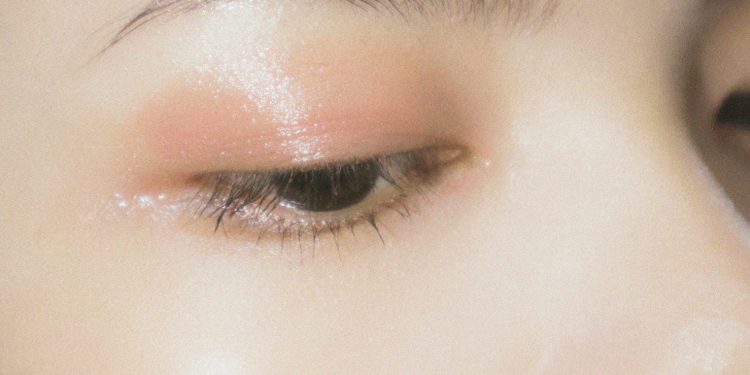In today’s world, environmental pollution is an inescapable reality, especially in urban areas. The effects of pollution on our skin can be severe, ranging from premature aging to inflammation and breakouts. Pollution particles are often small enough to penetrate the skin barrier, leading to clogged pores, oxidative stress, and skin irritation. Understanding how pollution affects the skin and learning how to protect it effectively are key to maintaining a healthy, radiant complexion. Let’s explore some practical steps you can take to protect your skin from the harmful effects of pollution.
1. Cleansing: The First Line of Defense
Proper cleansing is crucial to remove the impurities that accumulate on your skin throughout the day. Pollutants like dirt, dust, and toxins cling to the skin’s surface, and if not removed properly, they can lead to breakouts and a dull complexion. Cleansing your skin effectively helps prevent these harmful particles from causing damage.
To combat pollution, consider double cleansing, especially at night. Start with an oil-based cleanser to break down makeup, sunscreen, and sebum. Oil-based cleansers are effective at binding to oil-based impurities, making it easier to lift them from the skin. Follow up with a gentle water-based cleanser to ensure all traces of dirt and pollutants are removed. This two-step approach ensures that your skin is deeply cleansed without being stripped of its natural oils.
Avoid harsh cleansers that strip away the skin’s moisture barrier, as this can leave your skin vulnerable to environmental aggressors. Opt for sulfate-free, hydrating cleansers that effectively clean without causing dryness or irritation.
2. Use Antioxidants to Combat Free Radicals
One of the biggest impacts of pollution on the skin is the generation of free radicals. These unstable molecules cause oxidative stress, which breaks down collagen and leads to premature aging, hyperpigmentation, and weakened skin elasticity. Antioxidants are essential for neutralizing free radicals and protecting the skin from damage.
Incorporate antioxidant-rich serums or moisturizers into your daily skincare routine. Ingredients like vitamin C, vitamin E, green tea extract, and niacinamide are powerful antioxidants that help protect your skin from environmental stressors. Applying a vitamin C serum in the morning before your sunscreen can give your skin an extra layer of defense against pollution and UV rays.
Green tea extract is another excellent antioxidant that has anti-inflammatory properties, helping to soothe the skin and reduce any irritation caused by pollution. Look for serums or creams containing these ingredients to shield your skin and keep it healthy.
3. Moisturize to Maintain a Healthy Skin Barrier
A strong and well-hydrated skin barrier is one of your best defenses against pollution. The skin barrier is made up of lipids that help retain moisture and keep irritants out. When the skin barrier is compromised, pollutants can penetrate more easily, causing damage and inflammation.
To maintain a healthy skin barrier, ensure you’re using a good moisturizer that suits your skin type. Look for moisturizers that contain ceramides, fatty acids, and cholesterol—these ingredients help replenish and strengthen the barrier function of your skin. Ingredients like hyaluronic acid also help maintain moisture levels, ensuring your skin stays plump and hydrated.
If you live in an urban environment or a high-pollution area, consider using an occlusive moisturizer at night to create a barrier that locks in hydration and helps prevent pollutants from penetrating the skin.
4. Sunscreen: A Must-Have in the Fight Against Pollution
Sunscreen is often associated with sun protection, but it also plays an important role in shielding your skin from pollution. UV radiation and pollution often work together to cause oxidative damage, leading to accelerated skin aging. By wearing sunscreen, you help protect your skin from the damaging effects of both the sun and environmental pollutants.
Choose a broad-spectrum sunscreen with at least SPF 30 and make it a non-negotiable step in your morning routine. Physical sunscreens containing zinc oxide or titanium dioxide not only provide sun protection but also act as a physical barrier against pollution particles. Don’t forget to reapply sunscreen throughout the day if you’re outdoors for extended periods.
5. Protective Barriers: Physical Protection Matters
Apart from using the right skincare products, physical barriers also play an important role in protecting your skin from pollution. Wearing a wide-brimmed hat, sunglasses, and even a lightweight scarf can help reduce direct exposure to pollutants when you’re outside. If you commute in high-traffic areas, consider wearing a mask to protect your skin from vehicle emissions, dust, and airborne toxins.
While physical protection won’t completely shield your skin from pollution, it’s an effective way to minimize direct contact and reduce the overall burden on your skin.
6. Detoxify Your Skin with Face Masks
Using detoxifying face masks once or twice a week can help draw out impurities and deep-cleanse your skin. Clay masks are particularly effective at absorbing pollutants and excess oil from the skin’s surface. Bentonite and kaolin clay are two popular options that help purify the skin and unclog pores.
Charcoal masks are another excellent option for detoxifying the skin. Activated charcoal has a porous structure that allows it to attract and trap impurities, making it effective at drawing out pollutants from the skin. Look for masks with added antioxidants or soothing ingredients like aloe vera to ensure your skin stays calm and hydrated after detoxification.
7. Hydrate from the Inside Out
Proper hydration is key to maintaining healthy, resilient skin. Pollution can dehydrate the skin, compromising its barrier function and leaving it more susceptible to damage. Make sure you’re drinking plenty of water throughout the day to help your skin stay hydrated and maintain its elasticity.
In addition to drinking water, consuming antioxidant-rich foods can further protect your skin from pollution. Fruits like berries, oranges, and pomegranates, as well as vegetables like spinach and kale, contain high levels of antioxidants that support overall skin health and combat oxidative stress.
8. Don’t Forget About Nighttime Repair
Nighttime is when your skin goes into repair mode, making it the ideal time to use products that help counteract the damage caused by pollution. After cleansing your skin thoroughly, apply a serum with active ingredients that promote skin regeneration.
Retinoids are known for their ability to promote cell turnover, which can help fade pigmentation and improve the overall texture of the skin. Pair retinoids with a hydrating night cream that contains peptides or ceramides to support skin barrier repair. Overnight masks that contain nourishing ingredients like hyaluronic acid and squalane can also provide intensive hydration and help your skin recover from daily exposure to pollutants.
9. Antioxidant-Rich Diet for Extra Protection
Skincare products can only do so much; a balanced diet rich in antioxidants can further protect your skin from pollution’s harmful effects. Incorporate foods that are high in vitamins A, C, and E, as well as omega-3 fatty acids, to nourish your skin from within.
Vitamin C-rich foods like citrus fruits, bell peppers, and strawberries help fight free radicals and boost collagen production. Omega-3 fatty acids, found in foods like salmon, chia seeds, and walnuts, have anti-inflammatory properties that help strengthen the skin barrier and maintain hydration.
10. Avoid Over-Cleansing and Harsh Products
While it’s important to cleanse your skin thoroughly, over-cleansing can strip away essential oils and weaken the skin barrier, making it more susceptible to pollution. Stick to a gentle cleansing routine and avoid using harsh scrubs or foaming cleansers that contain sulfates.
Micellar water is a gentle and effective way to remove impurities without over-drying the skin. If you’re using micellar water as part of your cleansing routine, follow up with a hydrating toner or mist to restore moisture and balance.
Protecting Your Skin from Pollution: A Holistic Approach
Pollution is an unavoidable part of modern life, but taking a proactive approach to skincare can help you mitigate its effects and keep your skin healthy and glowing. Cleansing thoroughly, incorporating antioxidants, maintaining a healthy skin barrier, and using sunscreen are all essential steps in protecting your skin from pollution. Remember that consistency is key—protecting your skin every day, both inside and out, will help you maintain a radiant, youthful complexion despite the challenges of environmental stressors.















Discussion about this post